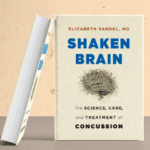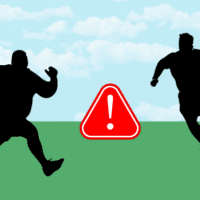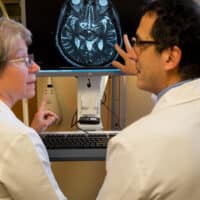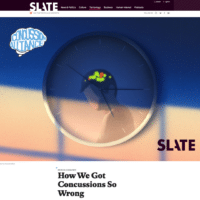Insights
Learn about the latest in concussion diagnosis, concussion aftercare, other traumatic brain injuries, and brain health.
Latest Insights
The Repercussion Group Issues Urgent White Paper Warning Against “Run It Straight” and RUNIT Championship League
The Repercussion Group, a global coalition of medical and advocacy experts, has issued an urgent White Paper condemning the viral “Run It Straight” challenge and its commercial spin-off, the RUNIT Championship League, as dangerous and unethical. These events, which involve participants colliding at full speed for online entertainment, pose severe risks of brain trauma, spinal injury, and long-term neurodegenerative disease. The group warns that social media platforms are enabling and profiting from this harmful content, often targeting vulnerable individuals. They call for immediate policy action, including bans, content regulation, education initiatives, and research funding, to curb what they describe as a growing public health crisis.
Generosity: Neuroscience and the Golden Rule
Generosity is the act of giving to others without an intended benefit to oneself and may come in the form of time, effort, money or other resources. It is not a transaction or a “quid pro quo,” i.e., the act of giving something with an expectation of a reward. Researchers note that generosity likely evolved as an adaptation to promote human survival, and indeed the survival of other species as well. Generosity is one of a variety of human behaviors that benefit others and even the person being generous, or contribute to the common good.
The Human Brain: Highly Evolved or Doomed to Failure?
Protecting our planet so it can continue to sustain life requires a comprehensive and collective vision, with clear strategies and tactics. Richer nations have the resources to do the most to prevent catastrophe, as well as the greatest responsibility for causing it, but are taking little or no action. What is it about the highly evolved human brain that is not capable of saving our planet from extinction? Greed and materialism are a big part of the problem but so are other destructive human traits and behaviors. Can we foster constructive traits and behaviors to save our world?
Physiatry: An Introduction to PM&R–Part 1
What is Physiatry? Physical Medicine and Rehabilitation (PM&R) physicians, also known as physiatrists, treat a wide variety of medical conditions that affect the central nervous system (the brain and spinal cord), the peripheral nervous system (other nerves), and the musculoskeletal system (the bones, joints, and associated soft tissues). Physiatrists have…
Dr. Sandel: 2025 Plans
Here’s an update on Dr. Sandel’s professional plans for 2025.
AMA Hub offers Concussion CME
The AMA Ed Hub has posted the CME program produced by Dr. Sandel and Concussion Alliance.
Is There a Connection Between Mild TBI and Mental Health Disorders in Adults and Children?
In a recent study, researchers at Kaiser Permanente found that risks for affective and behavioral disorders were significantly higher in the years post-injury for children and adolescents with a history of mTBI—especially for 10- to 13-year-olds. They emphasize the importance of regular interval screening for affective and behavioral disorders in children and adolescents who sustain a mild TBI. This post includes a slide presentation and Q & A with two of the researchers, Richard Delmonico, PhD, and Brian Theodore, PhD.
Concussion Alliance Co-Founders Interviewed for Slate Article
More and more journalists are writing about concussion, in many cases because they have had a concussion themselves or have friends or relatives who have experienced one. In March, 2024, Isobel Whitcomb interviewed Concussion Alliance co-founders Conor Gormally and Malayka Gormally for an article in Slate. It is concerning that bad medical advice (“just rest”) is still being given to concussion patients as is clear in Whitcomb’s story.
Why I Am Not Surprised About the Latest CTE Research
Millions of children play contact and collision sports in the US, with high risks for head impacts. Repetitive hits can result in concussions or subconcussions without immediate evidence of neurologic injury. CTE is a brain disorder caused by repetitive hits to the brain from sports such as football and soccer. The latest study from Dr. Ann McKee’s brain lab at Boston University links CTE to child athletes who died before the age of 30.
Concussion Care Highlighted in The Atlantic and Bloomberg News
I collaborated recently with Conor Gormally of Concussion Alliance to advocate for individualized and comprehensive concussion care in mainstream news stories with journalists who recounted personal stories of concussion. Here’s what The Atlantic and Bloomberg published.
Keep up to date
Get updates on the latest in concussion, brain health, and science-related tools from Dr. Elizabeth Sandel, M.D.
By clicking SIGN UP, you agree to receive emails from Dr. Sandel and agree to our terms of use and privacy policy.










